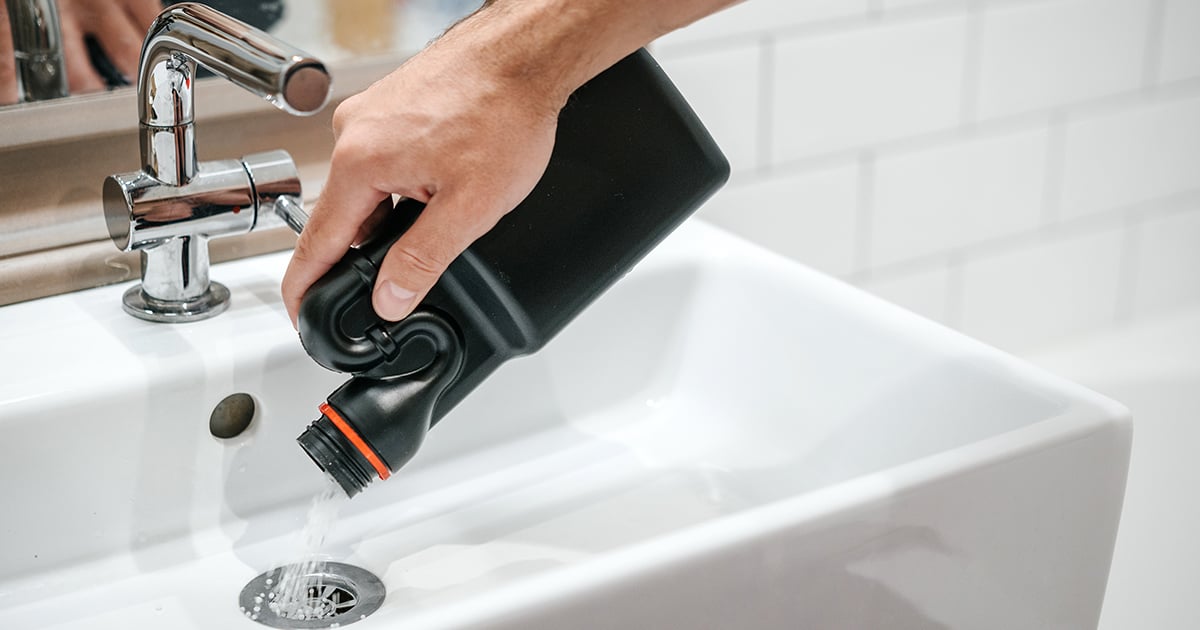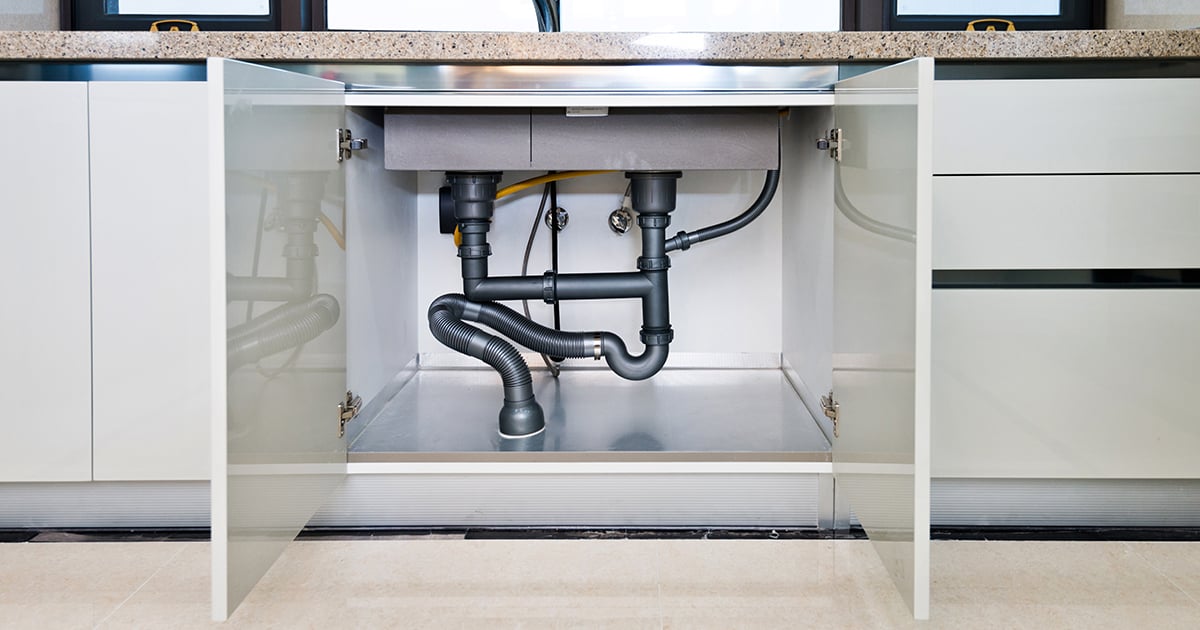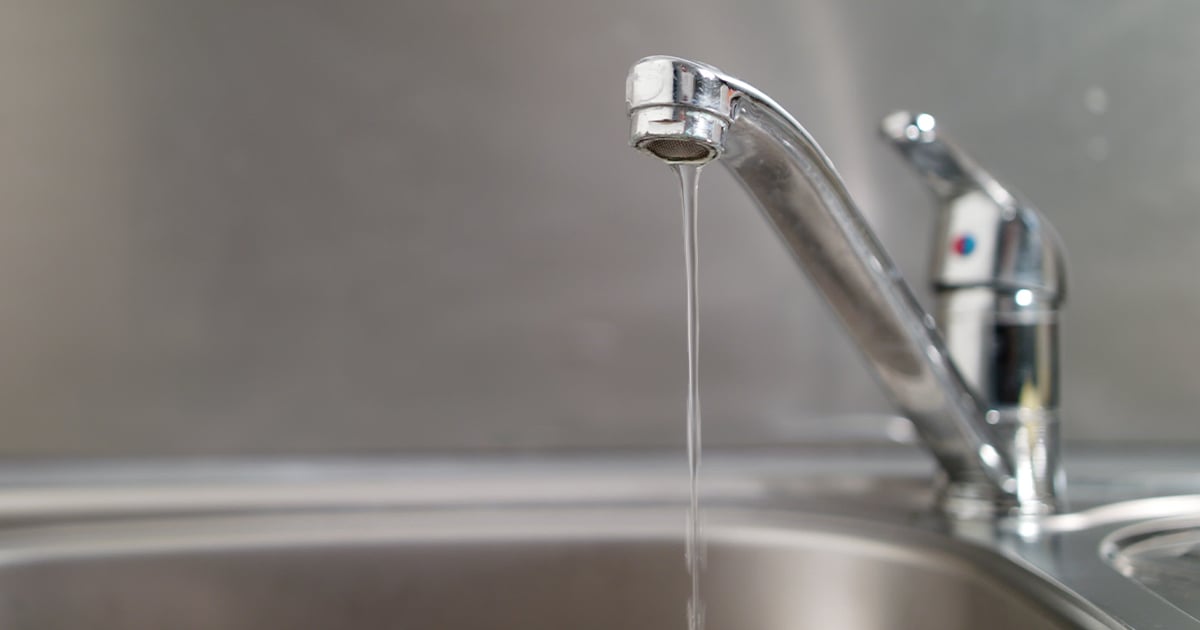Slow water flow can be an annoyance and a sign of a more significant problem. If you notice water trickling out of your faucets or slowly draining from your shower or sink, it might be time to flush your water lines and descale your pipes.
A likely cause is a buildup of calcium deposits in your pipes, especially if you live in an area prone to hard water. A staggering 85% of the U.S. has hard water, so it’s highly likely that your home deals with hard water.
How to descale your pipes
- Fill several pots with hot water. You’ll need at least one for each drain you need to clean.
- Turn off the water in your home.
- Turn off the water heater.
- Empty the pipes by turning on the faucets and flushing your toilets.
- Shut the faucet taps.
- Fill your pipes with your chosen drain cleaner (more on that later). Wait for the appropriate amount of time for the cleanser to work – a chemical cleanser may only take 15 minutes, whereas a natural cleanser may need several hours.
- Bring the pots of water to a boil and pour them down your drains.
- Turn the water lines and water heater back on.
- Turn on your faucets at full blast so the broken-up calcium deposits in your pipes flow out of your plumbing.

Chemical cleaners
Chemical cleaners use acid, bleach, or lye to generate heat within the pipes and break up the scale. Some of the more common brand names include CLR® and Drano®. These cleaners can be a fast and easy solution but sometimes cause other problems. Use caution, wear protective clothing, and follow all directions carefully when using chemical cleaners.
The caustic nature of these chemicals can soften plastic, which is very dangerous for PVC pipes. If your pipes are older and heavily corroded, it can eat away at the corrosion, so instead of slow flow from calcium buildup, you could end up with a hole in your pipe and a subsequent leak.
If your home has a well-water system, you must not use chemical cleaners as they can contaminate your drinking water. Well-water systems depend on bacteria to break down organic materials, and your system can become ineffective if harsh chemicals that kill bacteria are introduced.
Natural cleaners
There are numerous options if you’d prefer a more natural route to clean your water lines. Using a combination of plain vinegar and baking soda is a popular, natural solution for breaking up calcium deposits in pipes. Mix a few gallons of vinegar and a few cups of baking soda to create a homemade drain cleaner.
While a vinegar-and-water solution is the most popular natural solution, Well+Good recently offered a few other options for homemade drain cleaners made from pantry staples:
- • Baking soda, cream of tartar, and salt
- • Dishwashing detergent
- • Borax, salt, and vinegar
- • Boiling water
A new type of cleaner on the market claims to clean your pipes without any chemicals. Enzyme drain cleaners contain bacteria cultures and concentrated enzymes that respond to blockages made of organic material. The drain cleaner is designed to introduce bacteria to your pipes that should eat away buildup, avoiding the need for caustic chemicals.

Other solutions
Another approach that avoids taking your pipes apart is using a drain snake. Drain snakes will help to remove any clogs or blockage manually. A flat plunger can also be used with plain water or a mixture-based cleaning solution to force water and cleaner through clogs.
If flushing your water lines and descaling your pipes doesn’t work, you may need to take them apart and soak them in a cleaning solution. Doing so will give the cleaning solution more time to break down any calcification or clogs in your pipes. Ensure that whatever cleaner you choose will not cause significant damage to your pipes. Some cleaners are caustic enough to melt or warp PVC pipes.
If the buildup or damage in your pipes is significant, you may have to replace them.
Long-term maintenance and prevention
If you have continual issues with clogged pipes, a whole-house water softener can be a great solution to your problem. Installing a water softener is one of the best ways to stop the cycle of calcium buildup in your pipes. Water softeners remove minerals like calcium and magnesium, leaving your home with filtered, softened water. In addition to protecting your pipes, other benefits include cleaner dishes, longer-lasting appliances, and softer skin and hair. If you have any concerns about hard water in your home, don’t hesitate to address them.
If you have questions about finding the right type and size of water softener for your home, feel free to ask our Indy Water Pros for help. Whether you’re looking for an affordable, low-maintenance, or high-tech system, our team has the knowledge and experience to find the right water softener for your home.





